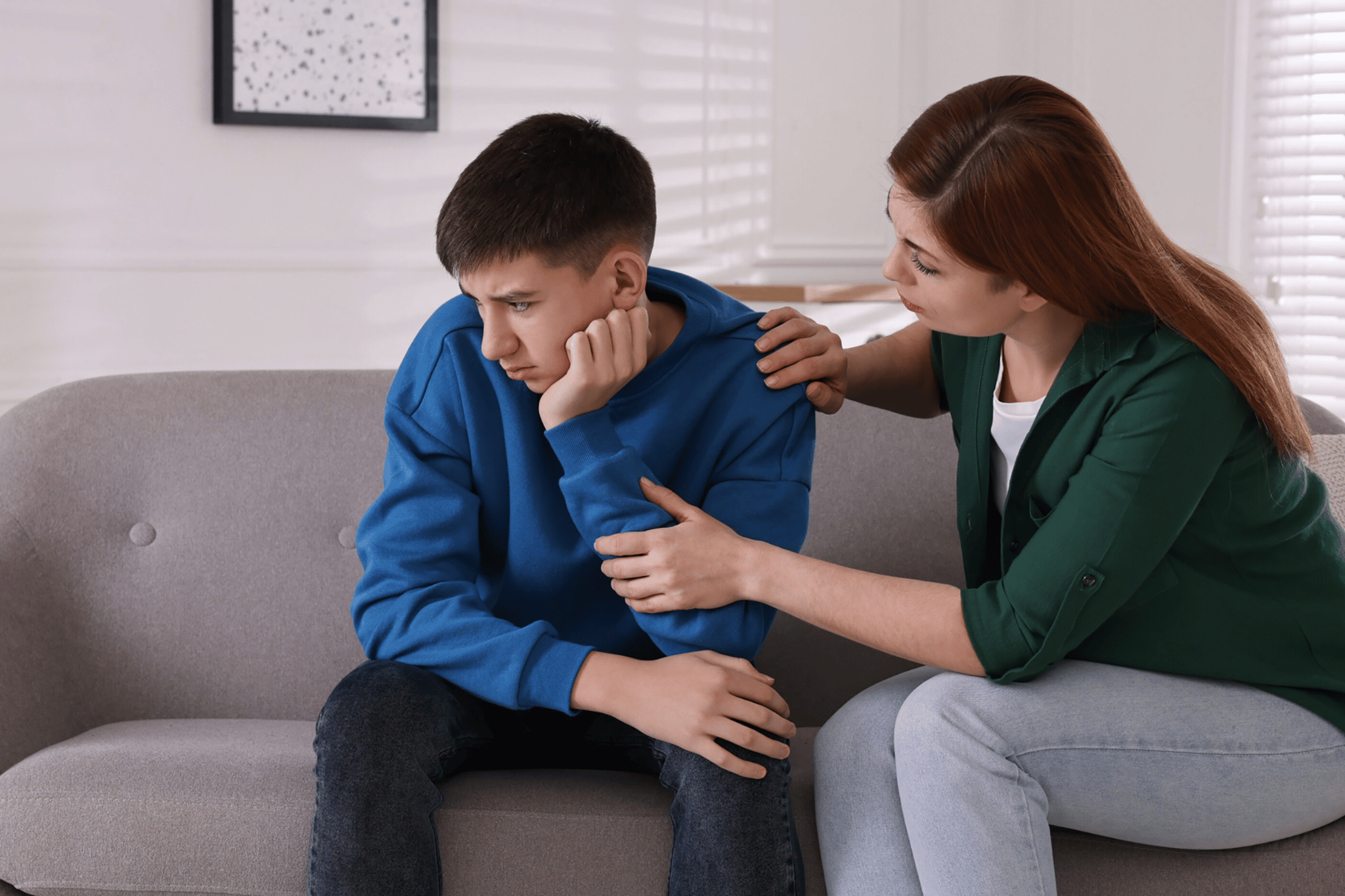Empower Your Teen with Behavioral Therapy for Teens’ Growth
Behavioral therapy helps teens manage emotion, improve behavior, and build healthy coping skills. At Adolescent Mental Health in Orange County, we offer evidence-based treatment programs that support teens with issues like anxiety, depression, stress, eating concerns, and substance abuse. Our therapists focus on improving mental health, emotional regulation, and daily functioning using proven methods like CBT, DBT, family therapy, and exposure therapy.

Therapy for Teens
Therapy gives teens a safe space to talk about feelings, thoughts, and problems. A licensed mental health professional guides them in exploring their mind, understanding feeling, and building emotional awareness. This process helps teens manage panic attacks, reduce impulsivity, and improve social skills.
Teens may face conditions like major depressive disorder, anxiety disorder, bipolar disorder, borderline personality disorder, or oppositional defiant disorder. Our therapists assess each patient and develop a plan based on goals, risk, and progress. Many teens gain confidence, motivation, and insight through regular sessions.
Cognitive Behavioral Therapy (CBT)
CBT helps teens identify negative thought patterns and change them through structured learning and practice. It teaches problem solving, stress management, and cognitive restructuring.
How It Works
CBT uses tools like cognitive reframing, journaling, and behavior tracking. Teens learn to recognize cognitive distortions such as jumping to conclusions and replace them with rational beliefs. CBT also works alongside medication if prescribed by a physician or psychiatry provider.
Benefits of CBT
Treats depression, panic disorder, and phobia
Improves confidence, behavior control, and belief patterns
Reduces emotional dysregulation, anger, and sadness
Increases awareness, acceptance, and emotional insight
Family Therapy
Family therapy involves the parent, teen, and other family members in healing. It builds understanding, improves communication, and strengthens emotional bonds.

Basic Principles
This therapy relies on attachment theory and relational models. A clinician helps each member express needs, discuss grief, and set healthy boundaries. Families learn to manage peer pressure, divorce, and bullying more effectively.
Benefits of Family Therapy
Builds empathy, understanding, and trust
Addresses behavior issues and reduces aggression
Supports teens with personality disorder or dual diagnosis
Helps caregivers become active supports in the treatment process
Dialectical Behavior Therapy (DBT)
Dialectical behavior therapy teaches skills for distress tolerance, mindfulness, interpersonal effectiveness, and emotional regulation. It is often used for teens dealing with suicidal ideation, borderline personality disorder, eating disorders, and self-harm.
Interpersonal Therapy (IPT)
IPT focuses on improving relationship issues. Teens explore past conflicts, emotional reactions, and behavior in peer groups. IPT helps reduce loneliness, improve mood, and address symptoms of mood disorder.
Acceptance and Commitment Therapy (ACT)
ACT helps teens accept uncomfortable feelings and act in line with personal values. It reduces panic, fear, and emotional avoidance. Therapists use guided imagery, meditation, and value-based exercises to promote psychological flexibility.

Exposure Therapy
Exposure therapy is used for teens with phobia, panic disorder, and social anxiety disorder. Teens gradually face feared situations under therapist supervision. This reduces avoidance, stress, and irrational fear responses over time.
Group Therapy
In group therapy, teens practice communication, learn from others, and gain peer support. Sessions may focus on anger management, grief, or improving social anxiety. A trained counselor leads the group and promotes community healing.
Online Therapy
Online therapy offers remote access to health care and therapy through secure platforms. Teens meet with a health professional from home using video sessions. Virtual reality and interactive tools can also support engagement. It’s helpful for those facing barriers like location, transportation, or insurance coverage limits.
Contact Adolescent Mental Health Today
Your teen does not have to face mental health challenges alone. Our Orange County clinic provides personalized care for addiction, anxiety, depression, schizophrenia, and more. We use the latest research, including systematic reviews and randomized controlled trials, to inform our therapy.
We welcome families from all backgrounds, including lgbtq youth and those affected by violence, domestic violence, or trauma. Services are often covered by insurance, and we work to ensure access and support. Whether your teen needs art therapy, help with body image, or tools for emotional regulation, we are here to help.
Contact Adolescent Mental Health today for more information, and take the next step toward healing, understanding, and growth.
Frequently Asked Questions
1. What signs suggest my teen may benefit from behavioral therapy?
Teens may benefit from therapy if they show signs of ongoing sadness, anxiety, irritability, or emotional outbursts. Other signs include changes in sleep or eating, withdrawal from family or peers, a drop in school performance, or behavior problems at home. Therapy can also help teens dealing with trauma, bullying, peer pressure, or a mental health condition like depression, panic disorder, or bipolar disorder.
2. Is therapy confidential for teens?
Yes, therapy is confidential, but there are limits. Therapists keep sessions private unless there is a risk of harm to the teen or others. In some cases, especially with issues like suicidal ideation, substance abuse, or violence, therapists may involve a parent, caregiver, or health professional for safety. Many therapists encourage open communication between teens and families while respecting personal boundaries.
3. Can therapy help with academic and social problems?
Absolutely. Therapy can improve social skills, reduce anxiety, and support better focus and time management. Teens struggling with peer group conflicts, social anxiety disorder, or attention issues often learn strategies that help in school settings. Techniques like stress management, problem solving, and cognitive restructuring can boost academic performance and build stronger relationships.
4. Is therapy covered by insurance?
Many behavioral health services are covered by insurance, depending on your plan. Coverage may include sessions with a therapist, counselor, or psychiatry provider. Our team at Adolescent Mental Health will help you verify benefits and understand your health care options. We aim to make quality mental health support accessible and affordable for families across Orange County.









